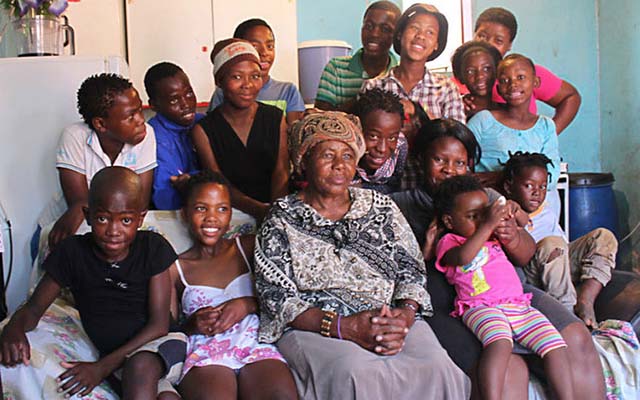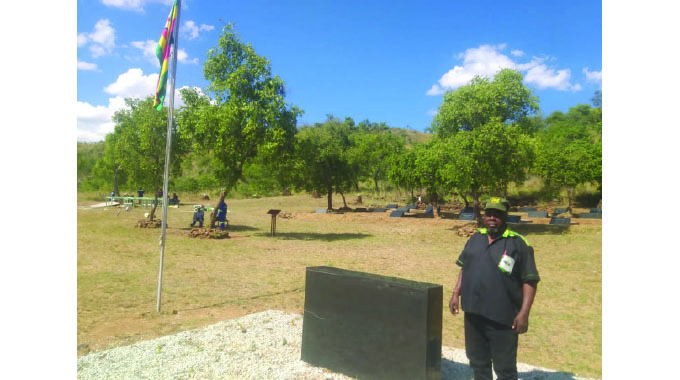The new loneliness of old age
Sekai Nzenza on Wednesday
“Kana ndachembera handidi kugara ndega,” said our friend Temba, the one who is normally based in the USA. By this, he meant that when he gets old, he does not want to live alone. “So who do you want to live with?” I casually asked. We were talking on the phone.
Temba had called to say he was going back the US, but will be coming back again before the end of the year. Temba came here before Christmas and stayed at his house in Harare. Now he is ready to go back “home” to America.
After more than 25 years in America, Temba says he is ready to come back home to Zimbabwe because he is getting older and it is time to acknowledge where his roots are.
“I just do not want to get old in the USA. It’s lonely out there,” he said.
I reminded him that it was lonely here too. Life has changed for most of us who grew up in the village where loneliness, or kusurukirwa, was rare.
“Loneliness in the USA is more painful than loneliness here. When I am here, I can walk outside my house in Mt Pleasant and meet people who greet me even if they do not know me,” Temba said.
“I can drive to Highfield and drink with old friends kumaStones. In America, you just do not talk to anyone like that. Man, people in Western countries die alone due to loneliness and depression.”
“You should get yourself a wife,” shouted Piri, who was eavesdropping on my phone conversation as she always does. You are right, I need a wife. I should have married your sister Charity,” Temba said.
Temba cannot give up his lost dreams on this old friendship with my late sister. They were probably in love. But if they had married, I doubt that their marriage would have lasted.
Charity was an ambitious person, who later became a diplomat with the Ministry of Foreign Affairs in Zimbabwe. Back in the village, Temba came from a well-to-do family. His father was Mr. Muzorori of Muzorori & Sons Stores.
At that time, the material disparity between our families was too wide. We were poor and had never been to the big city. Temba’s uncles had houses in Marimba Park, the suburb reserved for black businessman and other wealthy Africans in colonial Rhodesia.
I recall that Temba was in Form Four when I was in Form One. He was a handsome guy with an Afro and a deep voice. He wore nice shirts that opened at the front a bit, bell bottoms and platform shoes.
You saw him in his father’s store, inside the counter, playing the latest long play or LP records on the Supersonic stereo system. Temba often spoke in English only, like his tongue struggled to pronounce Shona words.
Later on, Temba became an engineer and went to America. He had three children who are all grown up now. He is divorced and is single again.
“Charity was beautiful. If I had married her, we would be getting older together now. Our children would have left home. Knowing Charity, she would have got a farm to keep us busy for the rest of our lives,” said Temba.
There was a tone of wistfulness and perhaps regret in his voice. Sometimes we look back to our past and build fantasies of what could have been. We dream of the lost love of our youth.
Piri laughed. “Iii, brother, dzokerai America munoroora madam wechirungu ane mari. Moenda mese munursing home,” she said, telling Temba to go back to America and marry a white woman with money then they can both go and live in a nursing home.
“Your cousin is rough,” Temba said. But he was also laughing. We are never prepared for the loneliness of old age because our parents and grandparents were not lonely,” said Temba.
When we lived in the village, I do not recall ever seeing my grandmother Mbuya VaMandirowesa alone except when she was asleep after drinking beer and eating a heavy meal in the afternoon.
Most times, Mbuya had company. Even when she stopped sharing the same sleeping mat with my grandfather at night, she still had the company of grandchildren and many other people. Loneliness in old age was unusual for both men and women.
My grandfather’s brother, Sekuru Mhofu, lived most of his life padare, the men’s place, where he carved wooden stools and head rests. He also did blacksmith work and was known to heal migraine by cutting and bleeding a vein on the temple of your head. Kutema rutsinga. Sekuru Mhofu was often alone because he wanted to concentrate. But Sekuru Mhofu was not lonely. People always came to seek advice from him padare.
In the village, we worked in the fields together and ate together, old and young. Most of our activities in the village were communal. We basically shared the same spaces. The girls slept on the mat with other girls while boys did the same. We went to the river and women and girls bathed together while men and boys shared the same bathing place. There was no room to feel lonely.
In those days, long before Independence, we were all related by blood, marriage or totem. We valued hukama or the ties of family relationships. When Harare was still called Salisbury, Mbuya VaMandirowesa used to say we should not go there. She said Salisbury was a jungle, musango. It was a very lonely place because there were no relatives there.
After Independence, we moved to the city. Extended family members who came to the city looking for employment often lived with other relatives, even if it was only one room. There was always space for your hama, the relative. My sister Charity finished university and met a handsome man from Gutu. He had just returned from many years living in Ireland, supporting the liberation struggle.
He paid a lot of lobola for her. They got married. We called him Babamukuru. He bought a big beautiful large house in Greendale. The house had five huge bedrooms, three bathrooms and five toilets. At the back of the house, my mother said that there was enough space to grow plenty of maize.
Babamukuru invited us all to live in the Greendale house. He said there was no need for us sisters to huddle together on the lounge room floor in the Glen Norah flats as we had done during the liberation war. Babamukuru’s relatives from Gutu also came to stay as well.
Every day, we cooked a big pot of sadza and another one of meat. At night we all sat in the living room and watched television. We were one big family joined together by hukama, family relationships. Babamukuru’s elderly aunts and other relatives came from Gutu and stayed for long periods of time.
Babamukuru and Charity did not worry too much about water, electricity or the price of meat. At that time, Zimbabwe was the breadbasket of southern Africa. The big house in Greendale gave us a feeling of being in the village. There was no room for loneliness.
But times have since changed. Our move to the city is slowly eroding hukama, bringing along new forms of loneliness. Some big houses in the suburbs are so far away from public transport. Distance discourages relatives to come and stay. At the same time, some of us like our own space so much that we prefer being alone than hosting close relatives from the village.
The village is slowly disappearing. When our children visit the village, they walk around with cameras, taking pictures like tourists. They marvel at thatched huts and granaries as symbols of interest. Some of these children have already settled permanently in the Diaspora. We are left alone. Our friend Temba realises that as he grows older, he is probably happier and not so lonely back here than living in the Diaspora. He should come home.
Getting old and lonely is no longer another Western concept. We can also be very lonely even in the company of a husband, wife or partner. As we continue to celebrate life, we might want to consider how to plan and manage the idea of loneliness in old age. Tisazochemberaka, tigere tega . . ·
- Dr Sekai Nzenza is a writer and cultural critic








Comments